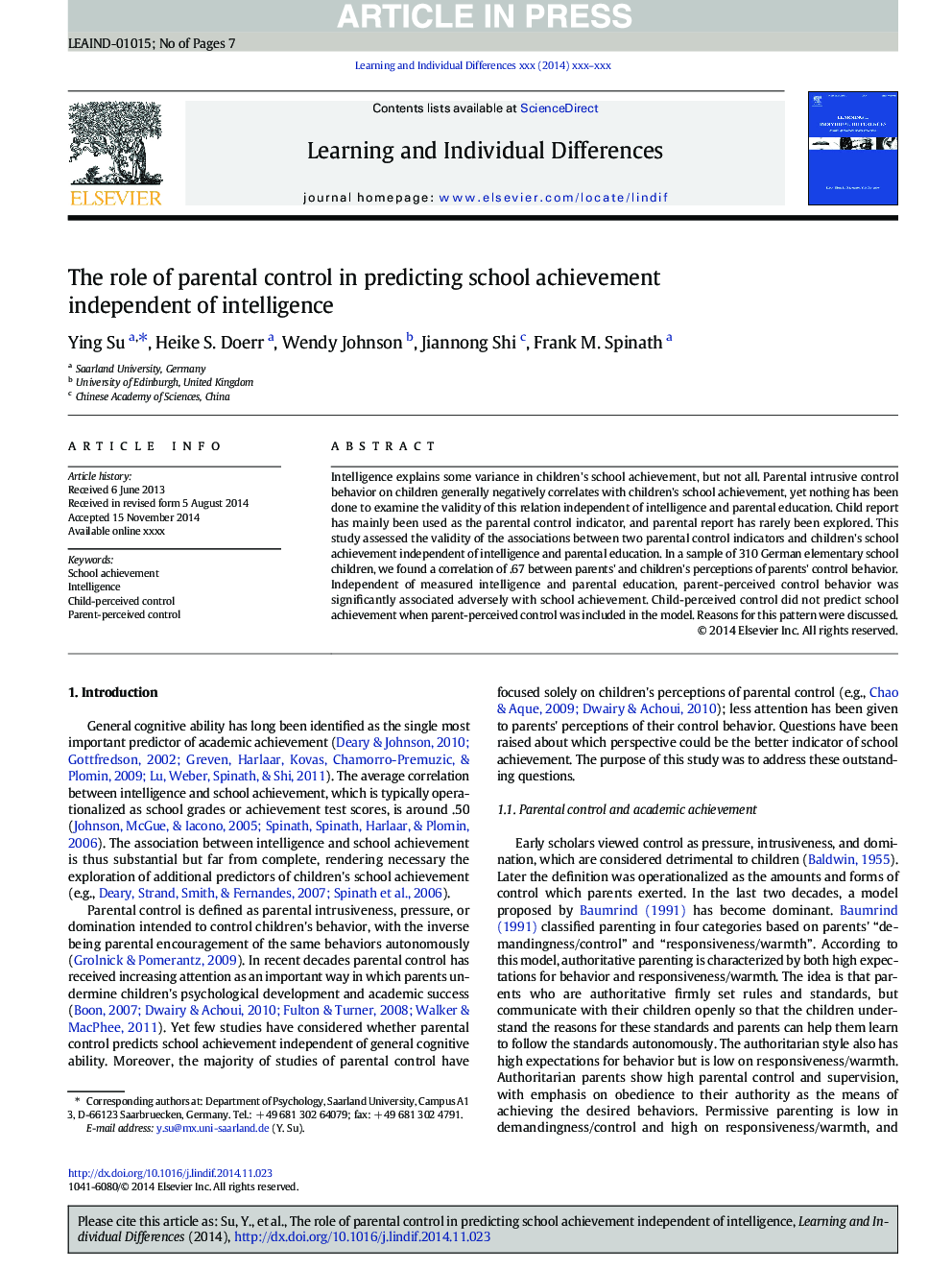| Article ID | Journal | Published Year | Pages | File Type |
|---|---|---|---|---|
| 6844946 | Learning and Individual Differences | 2015 | 7 Pages |
Abstract
Intelligence explains some variance in children's school achievement, but not all. Parental intrusive control behavior on children generally negatively correlates with children's school achievement, yet nothing has been done to examine the validity of this relation independent of intelligence and parental education. Child report has mainly been used as the parental control indicator, and parental report has rarely been explored. This study assessed the validity of the associations between two parental control indicators and children's school achievement independent of intelligence and parental education. In a sample of 310 German elementary school children, we found a correlation of .67 between parents' and children's perceptions of parents' control behavior. Independent of measured intelligence and parental education, parent-perceived control behavior was significantly associated adversely with school achievement. Child-perceived control did not predict school achievement when parent-perceived control was included in the model. Reasons for this pattern were discussed.
Keywords
Related Topics
Social Sciences and Humanities
Psychology
Developmental and Educational Psychology
Authors
Ying Su, Heike S. Doerr, Wendy Johnson, Jiannong Shi, Frank M. Spinath,
